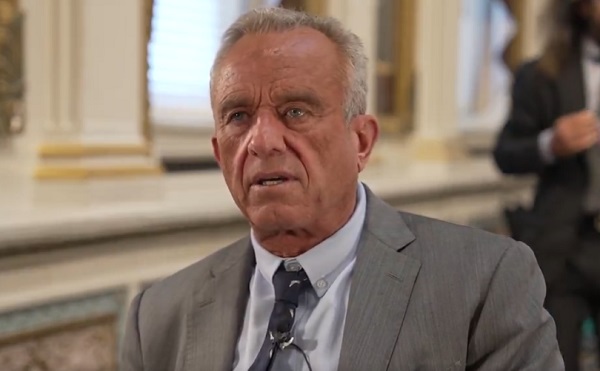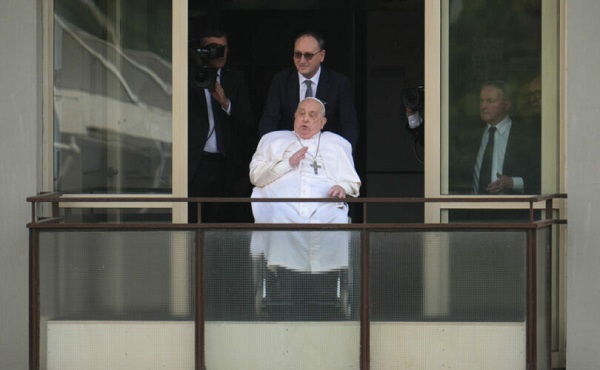Business
COVID lockdowns in Canada cost small businesses $60 billion in first year alone

From LifeSiteNews
In the first year of COVID lockdowns Canada’s small-to-medium-sized businesses, many of which are family-run, lost a combined $60 billion in gross profit, according to recently released statistics.
On February 18 Statistics Canada released a report regarding “Borrowing, repayments and bankruptcies” from Ottawa’s Canada Emergency Business Account (CEBA) program, finding that businesses with less than $1.5 million in annual expenses “experienced a drop in gross profit, totaling a loss of nearly $60 billion” from 2019 to 2020.
The CEBA program was struck in March of 2020 to give out businesses affected by COVID lockdowns interest-free loans of up to $60,000. The loans came with strings attached, however, and had to be paid back by a certain date to only have to pay a partial amount back.
The report noted that the COVID lockdowns, which were imposed by all provincial governments as well as mandated by the federal government for the agencies it ran, from 2020 to most of 2021, were “most challenging for client-facing industries.
Businesses that reported the biggest declines in gross profit were “client-facing ones, such as food service and drinking places, hotels, and offices of dentists and physicians,” noted the report. Many of these are family-run businesses.
When it comes to bankruptcies, the report noted that they rose sharply from about mid-2022 to early 2024, notably coming after businesses had to start repaying the CEBA loans, which came due on January 18, 2024.
COVID vaccine mandates, as well as lockdowns, which came from provincial governments with the support of the federal government, split Canadian society. The mRNA shots have been linked to a multitude of negative and often severe side effects in children.
In many provinces, such as Alberta, small and medium-sized businesses also fought back via lawsuits against their governments and health agencies, which put in place COVID rules.
LifeSiteNews reported last November, that a class-action lawsuit on behalf of dozens of Canadian business owners in Alberta who faced massive losses or permanent closures due to COVID mandates, was given the go-ahead to proceed by a judge.
As a result of COVID dictates, many Canadians fought back, most notably in the form of the 2023 Freedom Convoy, which saw thousands of Canadians from coast to coast come to Ottawa to demand an end to COVID mandates in all forms. Despite the peaceful nature of the protest, Prime Minister Justin Trudeau’s government enacted the never-before-used Emergencies Act (EA) on February 14, 2022.
As reported by LifeSiteNews, the Freedom Convoy’s two main leaders Tamara Lich and Chris Barber face a possible 10-year prison sentence. LifeSiteNews reported extensively on their trial, the verdict of which will be released on March 12.
Business
Cuba has lost 24% of it’s population to emigration in the last 4 years

 MxM News
MxM News
Quick Hit:
A new study finds Cuba has lost nearly a quarter of its population since 2020, driven by economic collapse and a mass emigration wave unseen outside of war zones. The country’s population now stands at just over 8 million, down from nearly 10 million.
Key Details:
- Independent study estimates Cuba’s population at 8.02 million—down 24% in four years.
- Over 545,000 Cubans left the island in 2024 alone—double the official government figure.
- Demographer warns the crisis mirrors depopulation seen only in wartime, calling it a “systemic collapse.”
Diving Deeper:
Cuba is undergoing a staggering demographic collapse, losing nearly one in four residents over the past four years, according to a new study by economist and demographer Juan Carlos Albizu-Campos. The report estimates that by the end of 2024, Cuba’s population will stand at just over 8 million people—down from nearly 10 million—a 24% drop that Albizu-Campos says is comparable only to what is seen in war-torn nations.
The study, accessed by the Spanish news agency EFE, points to mass emigration as the primary driver. In 2024 alone, 545,011 Cubans are believed to have left the island. That number is more than double what the regime officially acknowledges, as Cuba’s government only counts those heading to the United States, ignoring large flows to destinations like Mexico, Spain, Serbia, and Uruguay.
Albizu-Campos describes the trend as “demographic emptying,” driven by what he calls a “quasi-permanent polycrisis” in Cuba—an interwoven web of political repression, economic freefall, and social decay. For years, Cubans have faced food and medicine shortages, blackout-plagued days, fuel scarcity, soaring inflation, and a broken currency system. The result has been not just migration, but a desperate stampede for the exits.
Yet, the regime continues to minimize the damage. Official figures from the National Office of Statistics and Information (ONEI) put Cuba’s population at just over 10 million in 2023. However, even those numbers acknowledge a shrinking population and the lowest birth rate in decades—confirming the crisis, if not its full scale.
Cuba hasn’t held a census since 2012. The last scheduled one in 2022 has been repeatedly delayed, allegedly due to lack of resources. Experts doubt that any new attempt will be transparent or complete.
Albizu-Campos warns that the government’s refusal to confront the reality of the collapse is obstructing any chance at solutions. More than just a demographic issue, the study describes Cuba’s situation as a “systemic crisis.”
“Havana (Cuba, February 2023)” by Bruno Rijsman licensed under CC BY-SA 2.0 DEED.
Business
Tariff-driven increase of U.S. manufacturing investment would face dearth of workers

From the Fraser Institute
Since 2015, the number of American manufacturing jobs has actually risen modestly. However, as a share of total U.S. employment, manufacturing has dropped from 30 per cent in the 1970s to around 8 per cent in 2024.
Donald Trump has long been convinced that the United States must revitalize its manufacturing sector, having—unwisely, in his view—allowed other countries to sell all manner of foreign-produced manufactured goods in the giant American market. As president, he’s moved quickly to shift the U.S. away from its previous embrace of liberal trade and open markets as cornerstones of its approach to international economic policy —wielding tariffs as his key policy instrument. Since taking office barely two months ago, President Trump has implemented a series of tariff hikes aimed at China and foreign producers of steel and aluminum—important categories of traded manufactured goods—and threatened to impose steep tariffs on most U.S. imports from Canada, Mexico and the European Union. In addition, he’s pledged to levy separate tariffs on imports of automobiles, semi-conductors, lumber, and pharmaceuticals, among other manufactured goods.
In the third week of March, the White House issued a flurry of news releases touting the administration’s commitment to “position the U.S. as a global superpower in manufacturing” and listing substantial new investments planned by multinational enterprises involved in manufacturing. Some of these appear to contemplate relocating manufacturing production in other jurisdictions to the U.S., while others promise new “greenfield” investments in a variety of manufacturing industries.
President Trump’s intense focus on manufacturing is shared by a large slice of America’s political class, spanning both of the main political parties. Yet American manufacturing has hardly withered away in the last few decades. The value of U.S. manufacturing “output” has continued to climb, reaching almost $3 trillion last year (equal to 10 per cent of total GDP). The U.S. still accounts for 15 per cent of global manufacturing production, measured in value-added terms. In fact, among the 10 largest manufacturing countries, it ranks second in manufacturing value-added on a per-capita basis. True, China has become the world’s biggest manufacturing country, representing about 30 per cent of global output. And the heavy reliance of Western economies on China in some segments of manufacturing does give rise to legitimate national security concerns. But the bulk of international trade in manufactured products does not involve goods or technologies that are particularly critical to national security, even if President Trump claims otherwise. Moreover, in the case of the U.S., a majority of two-way trade in manufacturing still takes place with other advanced Western economies (and Mexico).
In the U.S. political arena, much of the debate over manufacturing centres on jobs. And there’s no doubt that employment in the sector has fallen markedly over time, particularly from the early 1990s to the mid-2010s (see table below). Since 2015, the number of American manufacturing jobs has actually risen modestly. However, as a share of total U.S. employment, manufacturing has dropped from 30 per cent in the 1970s to around 8 per cent in 2024.
| U.S. Manufacturing Employment, Select Years (000)* | |
|---|---|
| 1990 | 17,395 |
| 2005 | 14,189 |
| 2010 | 14,444 |
| 2015 | 12,333 |
| 2022 | 12,889 |
| 2024 | 12,760 |
| *December for each year shown. Source: U.S. Bureau of Labor Statistics | |
Economists who have studied the trend conclude that the main factors behind the decline of manufacturing employment include continuous automation, significant gains in productivity across much of the sector, and shifts in aggregate demand and consumption away from goods and toward services. Trade policy has also played a part, notably China’s entry into the World Trade Organization (WTO) in 2001 and the subsequent dramatic expansion of its role in global manufacturing supply chains.
Contrary to what President Trump suggests, manufacturing’s shrinking place in the overall economy is not a uniquely American phenomenon. As Harvard economist Robert Lawrence recently observed “the employment share of manufacturing is declining in mature economies regardless of their overall industrial policy approaches. The trend is apparent both in economies that have adopted free-market policies… and in those with interventionist policies… All of the evidence points to deep and powerful forces that drive the long-term decline in manufacturing’s share of jobs and GDP as countries become richer.”
This brings us back to the president’s seeming determination to rapidly ramp up manufacturing investment and production as a core element of his “America First” program. An important issue overlooked by the administration is where to find the workers to staff a resurgent U.S. manufacturing sector. For while manufacturing has become a notably “capital-intensive” part of the U.S. economy, workers are still needed. And today, it’s hard to see where they will be found. This is especially true given the Trump administration’s well-advertised skepticism about the benefits of immigration.
According to the U.S. Bureau of Labor Statistics, the current unemployment rate across America’s manufacturing industries collectively stands at a record low 2.9 per cent, well below the economy-wide rate of 4.5 per cent. In a recent survey by the National Association of Manufacturers, almost 70 per cent of American manufacturers cited the inability to attract and retain qualified employees as the number one barrier to business growth. A cursory look at the leading industry trade journals confirms that skill and talent shortages remain persistent in many parts of U.S. manufacturing—and that shortages are destined to get worse amid the expected significant jump in manufacturing investment being sought by the Trump administration.
As often seems to be the case with Trump’s stated policy objectives, the math surrounding his manufacturing agenda doesn’t add up. Manufacturing in America is in far better shape than the president acknowledges. And a tariff-driven avalanche of manufacturing investment—should one occur—will soon find the sector reeling from an unprecedented human resource crisis.
Jock Finlayson
Senior Fellow, Fraser Institut
-

 Health2 days ago
Health2 days agoRFK Jr. says ‘everything is going to change’ with CDC vaccine policy in Michael Knowles interview
-

 2025 Federal Election2 days ago
2025 Federal Election2 days agoNext federal government should recognize Alberta’s important role in the federation
-

 Business2 days ago
Business2 days agoLabor Department cancels “America Last” spending spree spanning five continents
-

 Business1 day ago
Business1 day agoTariff-driven increase of U.S. manufacturing investment would face dearth of workers
-

 Education1 day ago
Education1 day agoOur Kids Are Struggling To Read. Phonics Is The Easy Fix
-

 Economy1 day ago
Economy1 day agoClearing the Path: Why Canada Needs Energy Corridors to Compete
-

 2025 Federal Election10 hours ago
2025 Federal Election10 hours ago2025 Federal Election Interference from China! Carney Pressed to Remove Liberal MP Over CCP Bounty Remark
-

 Addictions1 day ago
Addictions1 day agoThere’s No Such Thing as a “Safer Supply” of Drugs










